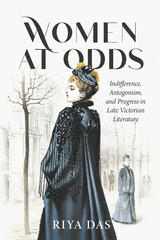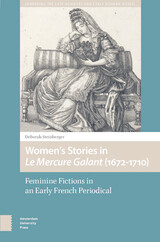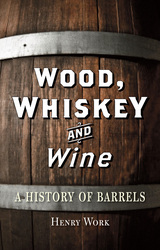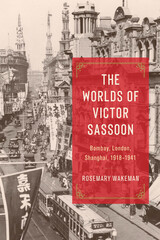102 books about Middle Ages and 4
start with T
102 books about Middle Ages and 4
102 books about Middle Ages
4 start with T start with T
4 start with T start with T
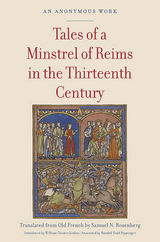
Tales of a Minstrel of Reims in the Thirteenth Century
Samuel N. Rosenberg
Catholic University of America Press, 2021
An anonymous minstrel in thirteenth-century France composed this gripping account of historical events in his time. Crusaders and Muslim forces battle for control of the Holy Land, while power struggles rage between and among religious authorities and their conflicting secular counterparts, pope and German emperor, the kings of England and the kings of France. Meanwhile, the kings cannot count on their independent-minded barons to support or even tolerate the royal ambitions. Although politics (and the collapse of a royal marriage) frame the narrative, the logistics of war are also in play: competing military machinery and the challenges of transporting troops and matariel. Inevitably, the civilian population suffers.
The minstrel was a professional story-teller, and his livelihood likely depended on his ability to captivate an audience. Beyond would-be objective reporting, the minstrel dramatizes events through dialogue, while he delves into the motives and intentions of important figures, and imparts traditional moral guidance. We follow the deeds of many prominent women and witness striking episodes in the lives of Eleanor of Aquitaine, Richard the Lionhearted, Blanche of Castile, Frederick the Great, Saladin, and others. These tales survive in several manuscripts, suggesting that they enjoyed significant success and popularity in their day.
Samuel N. Rosenberg produced this first scholarly translation of the Old French tales into English. References that might have been obvious to the minstrel’s original audience are explained for the modern reader in the indispensable annotations of medieval historian Randall Todd Pippenger. The introduction by eminent medievalist William Chester Jordan places the minstrel’s work in historical context and discusses the surviving manuscript sources.
[more]
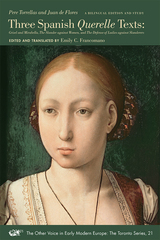
Three Spanish Querelle Texts
Grisel and Mirabella, The Slander against Women, and The Defense of Ladies against Slanderers
Pere Torrellas and Juan de Flores
Iter Press, 2013
This bilingual edition of the Three Spanish Querelle Texts is very well-conceived and will attract a wide audience among specialists and non-specialists alike. Francomano provides the first modern English translations of texts that enjoyed European-wide celebrity in the early sixteenth century. Her introduction is the best available summary of our knowledge about Torrellas’ two texts and Flores’ Grisel y Mirabella. Her translations are more readable than the Spanish texts, dividing Flores’ elaborate, rambling sentences into more comprehensible discourse. She often captures the tone of ambiguous or mock sincerity in the pleadings of both Flores’ and Torrellas’ characters. Francomano has a special sensitivity to the ludic quality of these discourses which helps readers appreciate their expression of “male anxiety” and “female agency” in the gender politics of their era.
[more]

Tides and Floods
New Research on London and the Tidal Thames from the Middle Ages to the Twentieth Century
James Galloway
University of London Press, 2010
The lands bordering the tidal river Thames and the Thames Estuary have historically been highly vulnerable to marine flooding. The most severe of these floods derive from North Sea storm surges, when wind and tide combine to drive huge quantities of water against the coast, as happened to devastating effect in 1953. This project seeks to understand the occurrence of storm flooding in the past, and to explore the ways in which people have responded to the threat. The project draws upon rich surviving documentary sources to study the impact of storm flooding upon the reclaimed marshlands bordering the tidal Thames and its estuary during the period c.1250-1550. Year-by-year accounts of the management of riverside properties have been examined and the degree to which reclaimed land was lost to the sea during the later Middle Ages assessed. The impact of population decline and agrarian recession upon the economics of coastal and river-side defence has been considered. The flood threat to medieval London’s low-lying suburbs has been investigated and the possibility that the long-term flooding of lands down-river spared the city the worst effects of North Sea storm surges explored. Parallels have also been sought in the modern policy of managed retreat or realignment. The volume concludes with an overview of the multi-faceted work of the Thames Discovery Programme, which is increasing our knowledge of many aspects of the Thames’s past, from medieval fish traps, through nineteenth-century shipbuilding, to the Blitz, which posed a new and very real flood threat to the mid-twentieth century metropolis.
[more]
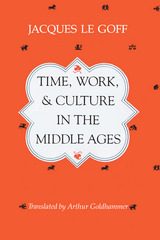
Time, Work, and Culture in the Middle Ages
Jacques Le Goff
University of Chicago Press, 1980
Jacques Le Goff is a prominent figure in the tradition of French medieval scholarship, profoundly influenced by the Annales school, notably, Bloch, Febvre, and Braudel, and by the ethnographers and anthropologists Mauss, Dumézil, and Lévi-Strauss. In building his argument for "another Middle Ages" (un autre moyen âge), Le Goff documents the emergence of the collective mentalité from many sources with scholarship both imaginative and exact.
[more]
READERS
Browse our collection.
PUBLISHERS
See BiblioVault's publisher services.
STUDENT SERVICES
Files for college accessibility offices.
UChicago Accessibility Resources
home | accessibility | search | about | contact us
BiblioVault ® 2001 - 2024
The University of Chicago Press


